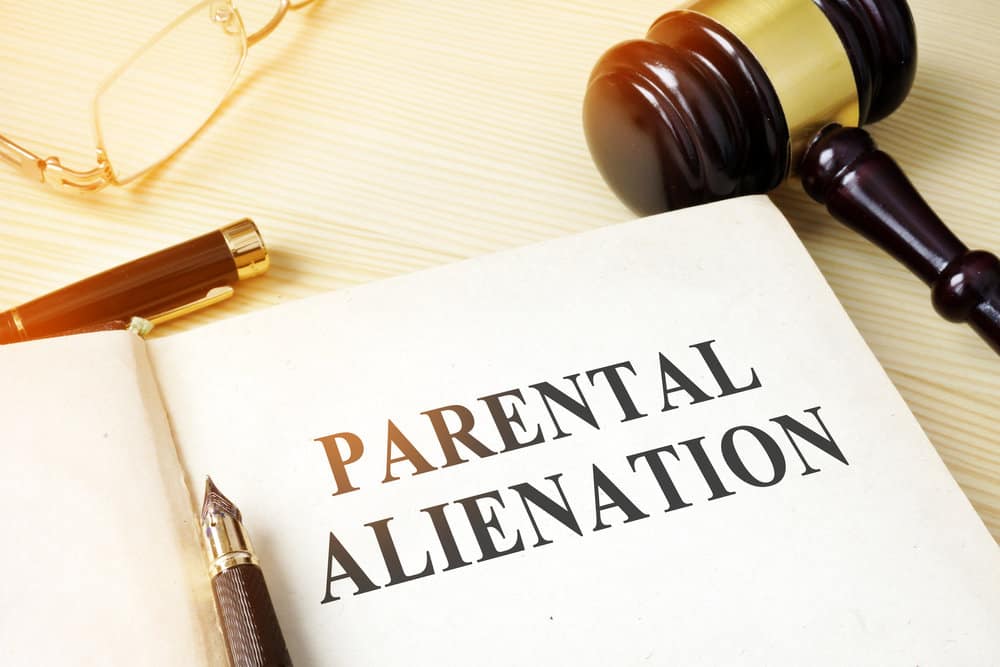Parental alienation is a challenging and often heartbreaking issue that affects many families, especially fathers. It occurs when one parent manipulates a child into rejecting and refusing to have a relationship with the other parent. Fathers often face an uphill battle when subjected to this emotional abuse, struggling to maintain a bond with their children while navigating the complex legal system and dealing with an uncooperative co-parent.
The alienating parent often uses false or exaggerated information to widen the gap between the child and the targeted parent. This makes it exceedingly challenging for the latter to maintain a healthy relationship with their children. Fathers who have been through shared custody situations, can attest to the agony and frustration of trying to safeguard their relationship with their children in the face of a difficult co-parent who refuses to comply with court orders or honor agreements.
Key Takeaways
- Parental alienation is a damaging issue that affects fathers and their relationships with their children.
- An uncooperative co-parent can make it difficult for fathers to navigate the legal system and maintain bonds with their kids.
- Personal experiences can shed light on the challenges faced by fathers dealing with parental alienation.

Understanding Parental Alienation
Parental Alienation vs. Parental Alienation Syndrome
Parental alienation refers to the psychological manipulation of a child to foster negative emotions and attitudes against one parent, often in the context of a divorce or separation. This can be devastating, especially for fathers determined to maintain a healthy, loving relationship with their children. In contrast, Parental Alienation Syndrome (PAS) encompasses the responses and behaviors of the child experiencing such manipulation. Understanding the difference between the two is crucial, as resolving the issue often requires distinct approaches.
In some cases, parental alienation can emerge as a major challenge. Shared custody situations can exacerbate the problem when one parent refuses to comply with court orders or honor any agreements they make, creating further turmoil and frustration.
Identifying Signs of Parental Alienation
Detecting the signs of parental alienation can be daunting, but it is essential to intervene early to minimize the long-term impact on children’s well-being. Some key indicators include:
- Unfounded hostility: Parental alienation could be at play when a child demonstrates sudden, unwarranted anger or resentment towards one parent. Getting to the issue’s root is vital to determine the cause and initiate appropriate responses.
- Favoritism: If a child seems overly aligned with one parent, shutting out the other without any apparent reason, it could indicate manipulation at hand. This phenomenon can be deeply disheartening for the rejected parent, who may struggle to comprehend the abrupt shift in their relationship.
- Disparaging comments: When a child persistently repeats negative or derogatory statements regarding one parent, this can signify parental alienation. Such commentary often mirrors the manipulating parent’s expressions, perpetuating falsehoods and misrepresentations.
- Resistance or refusal to visit the alienated parent: Children may sometimes resist or outright refuse visitations with the targeted parent, even if previously enjoyed. These severe reactions are often fueled by unfounded fear or anxiety about the alienating parent projects.
It’s crucial to recognize these warning signs and take necessary action to intervene, helping the affected child heal from the emotional and psychological harm inflicted by parental alienation. Remaining confident, knowledgeable, and neutral while navigating these challenges can make a profound difference in preserving and enhancing the bond between the targeted parent and the child.
Effects on Children and Fathers
Emotional and Mental Health Consequences
Parental alienation against fathers can significantly impact children and affected fathers’ emotional and mental well-being. This often results in confusion, sadness, and anger for the children. They may struggle with anxiety and depression due to the constant tension between their parents. Moreover, children’s attachment to their fathers might be hindered, causing them to internalize their emotions and develop relationship insecurities.
For many fathers, dealing with an uncooperative ex-partner can be a stressful and emotionally draining experience. Maintaining a bond with their children can be challenging, especially in shared custody cases where the ex-partner refuses to comply with court orders and agreements. This ongoing conflict can significantly impact the father’s mental health, leading to hopelessness, frustration, and sadness.

Impact on Father-Child Relationship
Apart from the emotional and mental health consequences, parental alienation against fathers can also have long-lasting effects on the father-child relationship. When a mother manipulates the child’s perception and emotions, it can result in the child distancing themselves from their father. As a ripple effect, the father might experience a sense of rejection that could impact their confidence as a parent.
In the long run, the uncooperative mother’s alienation tactics can damage familial bonds, potentially leading to trust issues and difficulties in communication amongst all involved parties.
Parental alienation against fathers has far-reaching effects on children’s and father’s emotional and mental well-being. The strained relationships that result from such situations can impact emotional bonds and psychological health in the long run. Addressing these issues promptly and cooperatively becomes crucial to fostering and preserving healthy father-child relationships.
Alienating Parent’s Behavior
Manipulative Tactics
It’s no secret that an alienating parent can be quite manipulative in their efforts to turn their child against the other parent. They may use guilt, fear, and even love as weapons. For example, an alienated parent might say, “if you really loved me, you’d want to spend more time with me instead of your father.” In many cases, alienating parents are highly skilled at twisting situations to make themselves appear as the victim and the targeted parent as the one to blame.
False Accusations and Lies
False accusations and outright lies are another common tactic of alienating parents. They may fabricate stories about the targeted parent, such as accusations of abuse or neglect, to create fear and mistrust in the child’s mind. This is particularly devastating when the father, in this case, has done nothing wrong and is simply trying to maintain a loving relationship with his child.
In their battle for control, some alienating parents will go so far as to actively undermine the other parent’s attempts to maintain a connection with their child. This situation can be incredibly frustrating for those who’ve experienced it firsthand.
Brainwashing Methods
Brainwashing can occur when an alienating parent tries to indoctrinate their child with their own negative beliefs and attitudes towards the targeted parent. Over time, the child may internalize these sentiments and start to believe that their father is a bad person, even though there’s no factual basis for this belief.
The alienating parent may employ various strategies, like constantly berating the father or deliberately keeping the child away from him. This influences a child’s perception, consequently sabotaging the father-child bond. Ultimately, the alienated parent remains desperate to reconnect with their child, while the alienated parent aims to reinforce their power over their ex-spouse.
To sum it up, parental alienation against fathers is complex and heartbreaking. An alienating parent uses manipulative tactics, spreads lies, and orchestrates brainwashing to drive a wedge between the child and their father. It’s crucial for all parties involved—especially children—to recognize these behaviors and find ways to move forward toward healing and rebuilding relationships.
The Legal System’s Role
Family Courts and Custody Battles
The legal system plays a significant part in addressing parental alienation. Family courts, in particular, are the battlegrounds for custody disputes. Sometimes, mothers blatantly disregard court orders, refusing to comply and trampling on agreed arrangements.
Judges, Lawyers, and Authorities
Family courts are filled with judges, lawyers, and authorities who play a role in determining how these cases proceed. Fathers must find knowledgeable attorneys to advocate for their rights. A well-versed lawyer can help navigate the complexities of the court system and ensure that fathers are given a fair shot at maintaining a healthy relationship with their children.
Sadly, not all legal professionals are equipped to handle the nuances of parental alienation cases. Unless a judge or lawyer has experienced the reality of alienation firsthand, they may struggle to grasp its impact on families. This expertise gap can lead to misinformed decisions that exacerbate the problem.
However, there is hope, as more legal professionals and courts are beginning to recognize parental alienation as a genuine issue. Efforts are being made to address the problem systematically, seeking solutions to bridge the animosity between parents and restore healthy relationships for the children involved.
Therapeutic Interventions
Individual Therapy
Individual therapy can be a powerful tool in healing those who have faced parental alienation. Mental health professionals, such as psychologists and therapists, often provide a safe space for the targeted parent to express their feelings and emotions.
Therapists can help fathers develop strategies to cope with the anger, depression, and frustration that result from such a challenging situation. By identifying triggers and learning effective communication techniques, fathers can work towards rebuilding their relationships with their children, even in cases where the ex-partner is non-compliant with court orders or shared custody arrangements.
Reunification Therapy
Reunification therapy is another valuable therapeutic intervention that mental health professionals use to mend fractured relationships between targeted parents and their children. This approach is particularly effective when the alienating parent continues to create barriers to communication, such as refusing to honor agreements or comply with court orders.
Reunification therapy involves the targeted parent and the child, promoting open dialogue and healthy communication. Mental health professionals facilitating this process may focus on reestablishing trust, addressing misinformation, and correcting any false narratives created by the alienating parent.
In cases where shared custody is part of a court order, the involvement of mental health professionals can aid in shifting the dynamics of the parent-child relationship. They can guide how to navigate difficult conversations and support the targeted parent in navigating the complexities of reconciling their role as a father while dealing with a noncompliant ex.
In conclusion, individual and reunification therapy offers unique opportunities for targeted parents. These therapeutic interventions can be life-changing for parents and children struggling with the harsh reality of parental alienation. Mental health professionals play a crucial role in instigating the healing process and helping fathers reconnect with their children meaningfully.
Estrangement, Safety, and Necessities
Distinguishing Estrangement from Parental Alienation
Estrangement is when a child distances themselves from a parent for legitimate reasons, such as abuse or neglect. On the other hand, parental alienation occurs when one parent manipulates the child into unjustifiably rejecting the other parent. It’s essential to distinguish between the two, as both have different implications for the child’s well-being and the relationship with the alienated parent.
Meeting the Child’s Needs
The key focus in custody disputes should always be the child’s happiness, safety, and overall well-being. Despite the challenges faced, the alienated parent must remain committed to fulfilling the child’s emotional and physical needs.
As an alienated father, it’s essential to maintain a loving presence, be aware of the child’s struggles, and provide a safe environment where they feel supported. Additionally, it’s vital to remain engaged in their lives, prioritizing communication and nurturing the relationship as much as possible.
Working with legal and mental health professionals can help guide the alienated parent through this arduous process, offering valuable insight and advice on handling the complexity of such situations.
In conclusion, distinguishing estrangement from parental alienation is crucial for understanding the underlying reasons for a deteriorating relationship with a child. By prioritizing the child’s needs, a parent can navigate the challenges of shared custody and maintain a meaningful connection with the children involved.
Documenting and Proving Parental Alienation
Gathering Evidence
Gathering evidence is a crucial step in proving parental alienation against a father. It’s essential to be thorough and consistent in documenting all interactions, communications, and incidents that reflect alienating behavior against the father. In a situation like shared custody, where the mother refuses to comply with court orders and does not honor agreements, keeping a detailed record is vital.
One effective method to gather evidence is maintaining a journal or a calendar to record all instances of denied visitation, manipulative communications, or any attempts made by the mother to turn the children against their father. Correspondences via text messages, emails, and voicemails should be saved and backed up as they can serve as strong evidence in court.
In addition to written records, gathering testimonies from neutral third parties, such as teachers, healthcare providers, or family friends, is helpful. These testimonies can provide valuable insights into any manipulative behavior and help support the father’s case.

Working with Legal Professionals
Working with legal professionals is vital in effectively proving parental alienation. A knowledgeable and experienced attorney with a background in parental alienation cases can be a valuable ally when striving to protect the father’s relationship with his children.
The attorney will help the father navigate the complex legal system and ensure the necessary evidence is presented persuasively and structured. Furthermore, the attorney may advise the father on how to respond to provocative behavior from his ex without falling into her traps or harming his case.
In addition to legal representation, it may also be beneficial to consult with mental health professionals, such as psychologists or family therapists, to gain a deeper understanding of the emotional impact of parental alienation on the children. These experts can assess the family dynamics and recommend appropriate therapeutic interventions.
Ultimately, the fight against parental alienation is challenging but not impossible. With dedication, persistence, and support from legal professionals, the affected father can work towards restoring his relationship with his children and ending the damaging effects of alienation.
Moving Forward and Healing
Rebuilding Relationships
Targeted fathers need to focus on progress in rebuilding relationships with their children. The journey may not be smooth, but taking it one step at a time can lead to meaningful connections. Communicating with children regularly, fostering their interests, and creating positive memories can support healing. In some cases, involving grandparents can also help as they often serve as a bridge between alienated fathers and their children.
Support for Targeted Fathers
Emotional support for targeted fathers is vital to their well-being throughout this healing process. Given the trauma they experience due to alienation, finding a solid support network of friends, family, and professionals can significantly boost their confidence and resilience. Support groups or therapy sessions can also help fathers make sense of their emotions, better understand their situation, and learn strategies to cope effectively.
As they work to rebuild their relationships and navigate the challenges of parental alienation, targeted fathers must resist engaging in revenge or harmful actions against the alienating parent. Adopting a clear and neutral approach while seeking comfort and guidance from others can ultimately lead to a more fulfilling and healthy outcome for everyone involved.

Frequently Asked Questions
What are the common signs of parental alienation against a father?
Parental alienation against a father might manifest in various ways. Some common signs may include a child’s sudden negative attitude or reluctance to spend time with their father, false or unjustified accusations against the father, and the mother actively undermining the father’s authority or relationship with the child. In some cases, the mother might even manipulate the child by using them as a pawn, leading to an emotionally challenging situation.
How can a father fight against parental alienation?
Fighting against parental alienation is undoubtedly tough, but it’s crucial to maintain a clear and systematic approach. A father should document every instance of alienation, gather evidence of the mother’s non-compliance with custody agreements or court orders, and maintain open communication with his child as much as possible. He should also seek professional help, such as a therapist or support group, and consult with an attorney specializing in family law to explore legal remedies.
What are the possible consequences of parental alienation for the children?
Parental alienation might have long-lasting, damaging effects on children. They may suffer from low self-esteem, depression, anxiety, and difficulty forming healthy relationships in adulthood. Alienated children may also grow up to have trust issues, struggle with emotional regulation, and experience a general sense of fragmented identity, which can dampen their overall quality of life.
What legal actions can be taken by a father to address parental alienation?
A father can take several legal steps to address parental alienation. He should consult a family law attorney to determine the best course of action based on his circumstances. Possible legal actions might include filing a motion for contempt against the mother, seeking a custody modification, or even pursuing supervised visitation to ensure a healthy relationship with the child. In these cases, Swift and decisive action is essential to protect the child’s best interests.
How can a father maintain a healthy relationship with their child despite alienation?
Despite the challenges of alienation, a father should remain steadfast in cultivating a healthy relationship with his child. He can do this by consistently demonstrating love, support, and understanding without forcing the child to choose sides. Open communication and active listening can help bridge the gap and find and engage in activities the child genuinely enjoys.
What resources are available for fathers dealing with parental alienation?
Thankfully, numerous resources are available for fathers battling parental alienation. Such resources include support groups, therapists specializing in family dynamics, and books and articles discussing strategies to combat alienation. Additionally, there are countless online forums and social media groups where fathers can share their experiences and receive practical advice from others going through similar struggles.



